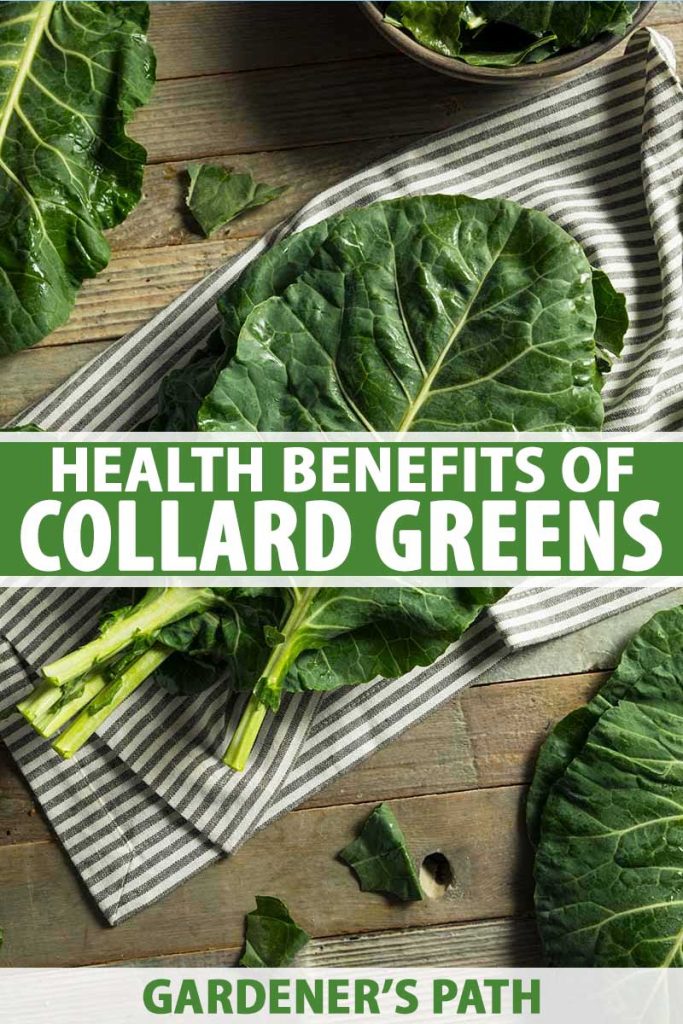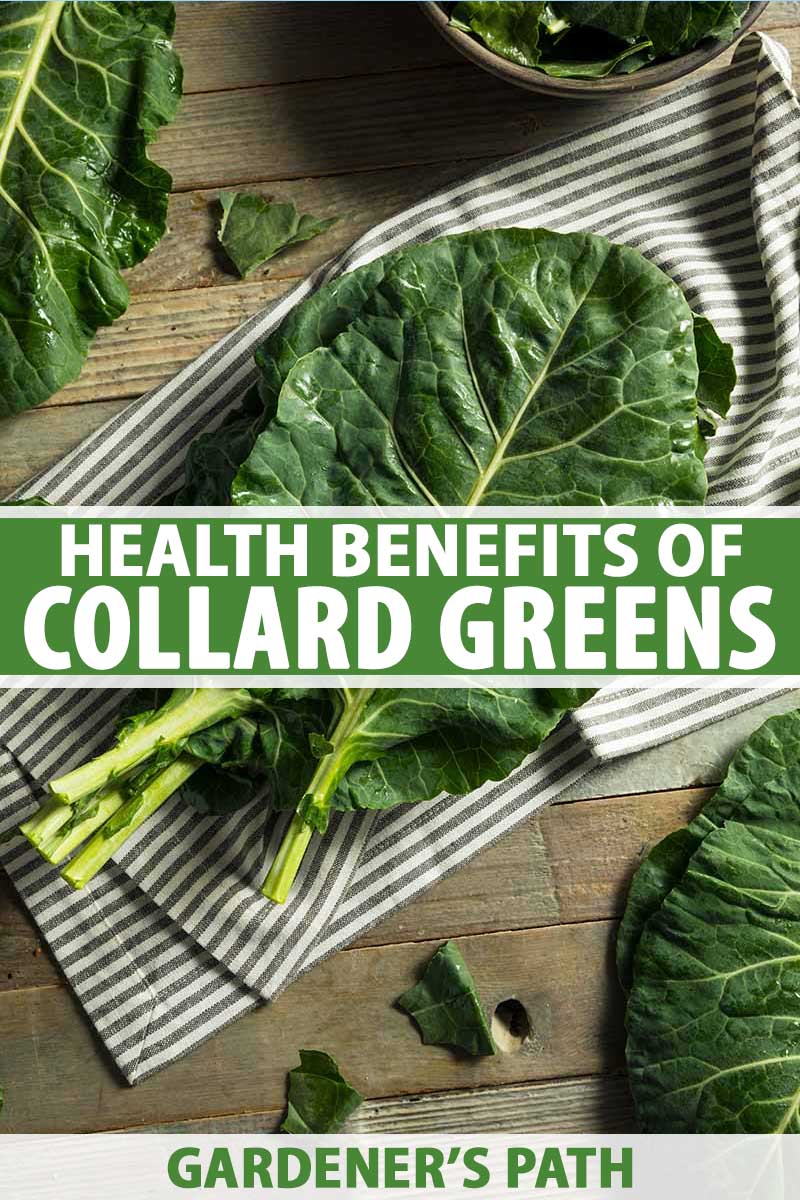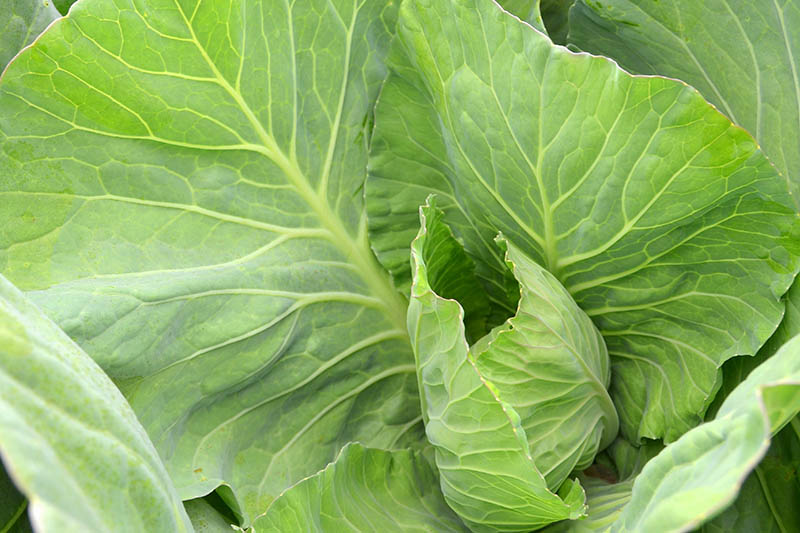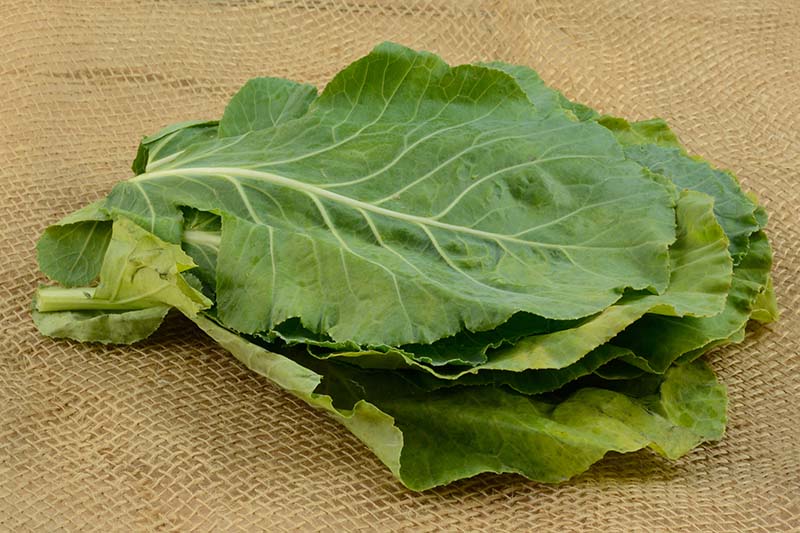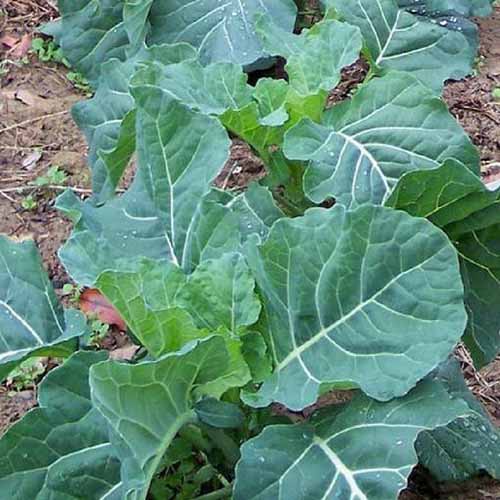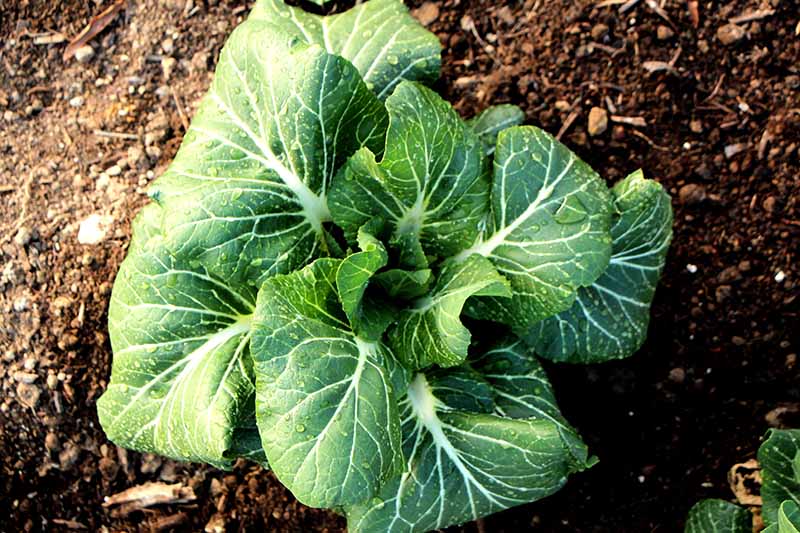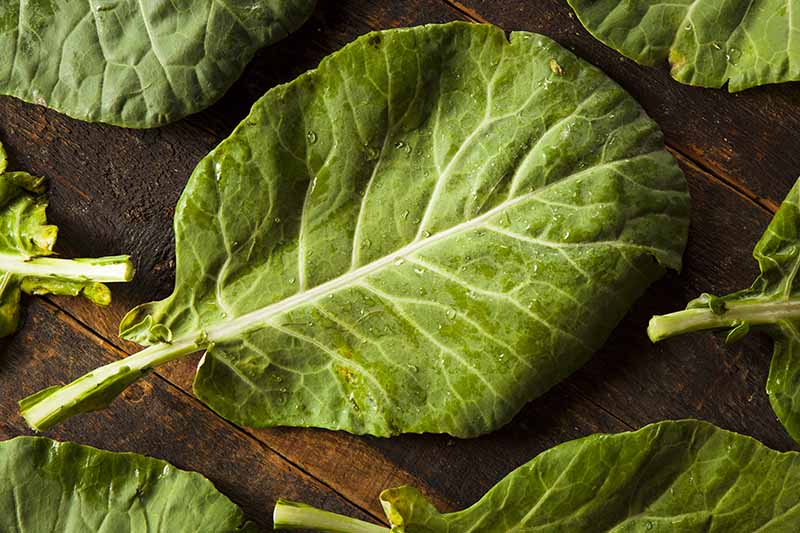A side dish staple of the South, collard greens can make a tasty and nutritious addition to your leafy-green vegetable repertoire. After taking a deeper look into their health benefits, you’ll be ready to grow and cook up your own. We link to vendors to help you find relevant products. If you buy from one of our links, we may earn a commission.
What Are Collard Greens?
Collard greens are a leafy variety of the Brassica oleracea species, from the Acephala group. The Brassica genus also includes several other veggies like cabbage and broccoli.
In the United States, they grow mainly in the southern states, and are often served with bacon or smoked meats like ham hocks. Outside of the US, they grow in Brazil, Portugal, and parts of Italy, Spain, and Africa. Collard greens can be eaten raw or cooked, though cooking them is generally more common. Don’t let that stop you from adding them to your next salad though! Just wash, de-stem, and be sure to massage the leaves for a soft and tasty texture.
Components of Collards
Aside from being a beautifully green and leafy addition to the garden, they are also highly nutritious! Like most veggies, they are low in calories and high in essential nutrients.
One cup of cooked collard greens has a modest 42 calories. It packs 179 milligrams of calcium, or about 18 percent of the recommended daily intake for adults. Consuming one cup of the cooked greens also meets 7 percent of your daily magnesium needs, 20 percent of daily dietary fiber needs, 6 percent of phosphorus needs, and 54 percent of vitamin A needs. Eaten raw, they are just as nutritious, but remember that you need to eat a higher volume to get to the same nutrient totals. Raw, they offer a measly 12 calories per cup. Seeds can be started indoors, or sown directly in the garden. Learn more about growing your own collard greens here. One cup of raw greens provides 46 micrograms of folate, where one cup of cooked greens only offers 20.5 micrograms.
‘Georgia Southern’ Want to grow your own? Try these ‘Georgia Southern’ seeds from Eden Brothers.
Health Benefits of Collard Greens
So, what do all of these numbers and percentages equate to? A multitude of health benefits!
They are a good source of calcium, which is commonly known to support bone health. Most calcium is used to aid bone structure and function, but it also supports muscle function, nerve contraction, and dilation of veins. Vitamin A is another key nutrient. Vitamin A allows us to be able to see, by helping to make a protein that absorbs light in our retinas. Additionally, vitamin A supports immune health and cell growth. They offer a boost of dietary fiber as well. Fiber is important for regulating the digestive system, encouraging the production of helpful gut bacteria, regulating blood sugar, and helping to balance cholesterol levels. Phytochemicals also play a role in the health benefits that this leafy veggie has to offer.
Calling on Collards
Whether you enjoy them raw, steamed, or even sauteed with a bit of bacon, know that you are reaping some healthful rewards!
Try them in unique ways with recipes from our sister site, Foodal. These creamed collard greens make a creamy, cheesy side dish while this smoothie offers a sneaky way to increase your greens intake. Just substitute them for the kale. Are collard greens common in your diet? What is your favorite way to prepare them? Let me know in the comments! And if you’re interested in learning more about growing collard greens, check out these articles next:
7 of the Best Collard Greens Varieties to Grow at Home Tips for Growing Collard Greens in Winter How to Harvest Collard Greens
© Ask the Experts, LLC. ALL RIGHTS RESERVED. See our TOS for more details. Product photo via Eden Brothers. Uncredited photos: Shutterstock. The contents of this article have been reviewed and verified by a registered dietitian for informational purposes only. This article should not be construed as personalized or professional medical advice. Gardener’s Path and Ask the Experts, LLC assume no liability for the use or misuse of the material presented above. Always consult with a medical professional before changing your diet, or using supplements or manufactured or natural medications.
